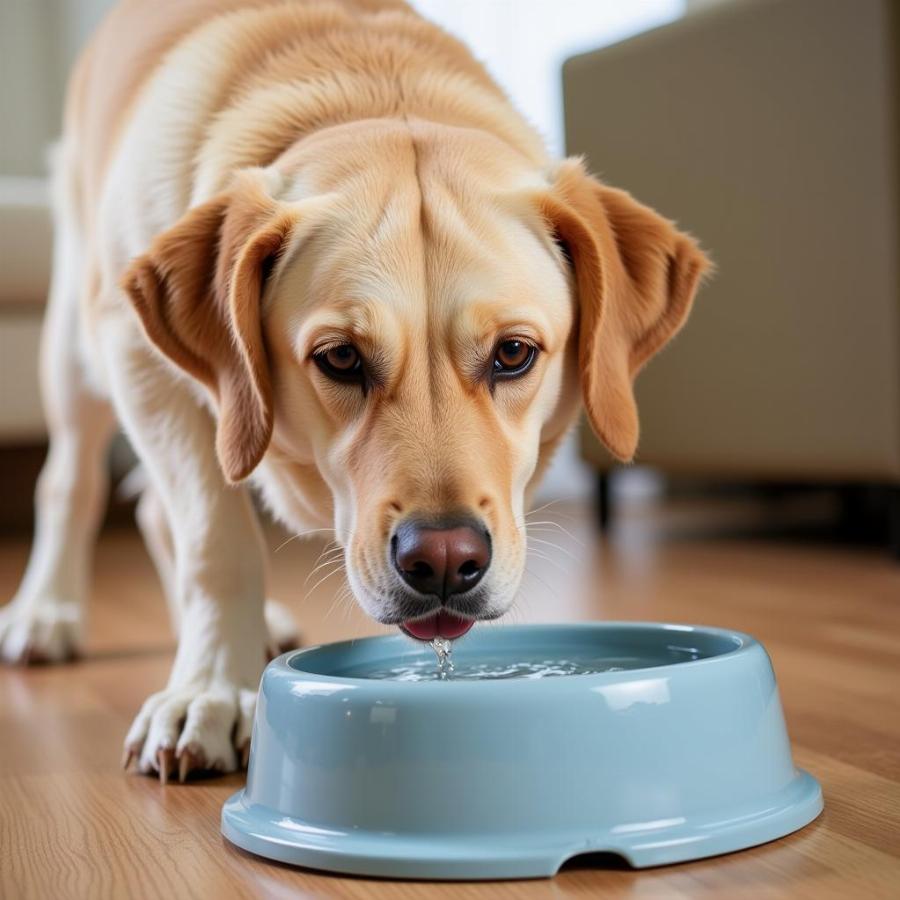The search term “big dog’s draft house menu” suggests a desire for dog-friendly establishments with specialized menus. While a dedicated “draft house” menu for dogs might not yet exist in the traditional sense, understanding this search intent allows us to explore the growing trend of dog-friendly dining and how owners can provide delicious and healthy “menu” options for their large breed companions at home. We’ll delve into nutritional needs, portion control, and homemade treat recipes that cater to the specific requirements of bigger dogs.
Nourishing Your Gentle Giant: Tailored Nutrition for Large Breeds
Large breed dogs have unique dietary needs, differing significantly from their smaller counterparts. Their rapid growth, larger frames, and predisposition to certain health issues, like hip dysplasia, require a diet rich in specific nutrients. A balanced “menu” for a big dog should focus on high-quality protein for muscle development, controlled calcium and phosphorus for healthy bone growth, and glucosamine and chondroitin for joint support. Forgetting these crucial elements can lead to long-term health problems.
Portion Control: The Key to a Healthy Weight
Just like humans, overfeeding can lead to obesity in dogs, especially larger breeds. A carefully curated “menu” means not only selecting the right ingredients but also controlling portion sizes. Factors like age, activity level, and metabolism influence how much food a big dog needs. Consult your veterinarian for personalized guidance, but as a general rule, avoid free-feeding and divide daily food intake into two or three meals.
Homemade Treats: A Delicious and Healthy Addition to the “Menu”
Homemade treats can be a fantastic way to supplement your big dog’s diet and provide mental stimulation. Simple recipes using ingredients like peanut butter, bananas, and oats can be both delicious and nutritious. Remember to factor these treats into your dog’s daily calorie intake to prevent overfeeding.
Addressing Common Concerns: Feeding a Big Appetite
Many owners of large breeds struggle with managing their dog’s seemingly insatiable appetite. While big dogs do require more food, constant begging or scavenging can indicate underlying issues, such as boredom or anxiety. Providing plenty of exercise and mental enrichment, alongside a balanced “menu,” can help curb excessive hunger and promote overall well-being.
Hydration is Key: The Often Overlooked “Menu” Item
Water is essential for all dogs, especially large, active breeds. Ensure fresh, clean water is always available, particularly after exercise or on hot days. Dehydration can lead to serious health complications.
 Dog Drinking Water
Dog Drinking Water
Creating a “Menu” for Success: A Holistic Approach
A “big dog’s draft house menu,” though a fun concept, ultimately translates to providing a balanced and appropriate diet for your large breed companion. This involves careful selection of commercial food, portion control, and the occasional healthy homemade treat. By addressing your dog’s specific needs, you can ensure they live a long, healthy, and happy life.
FAQs: Addressing Your Big Dog Diet Questions
- How much should I feed my large breed dog? Consult your veterinarian for personalized guidance, as factors like age, activity level, and breed play a role.
- What are the best ingredients for large breed dog food? Look for high-quality protein sources, controlled calcium and phosphorus levels, and joint-supporting supplements like glucosamine and chondroitin.
- Can I give my large breed dog homemade treats? Yes, homemade treats can be a healthy and enjoyable addition to their diet, but remember to factor them into their daily calorie intake.
- How can I tell if my large breed dog is overweight? You should be able to feel their ribs easily but not see them prominently. Consult your veterinarian if you’re unsure.
- What are some signs of dehydration in dogs? Loss of appetite, lethargy, dry gums, and sunken eyes are common signs of dehydration.
- What should I do if my large breed dog is constantly begging for food? Ensure they are getting enough exercise and mental stimulation. Consult your veterinarian to rule out any underlying medical conditions.
- Are there specific foods I should avoid giving my large breed dog? Yes, avoid foods like chocolate, grapes, raisins, onions, and garlic, as they can be toxic to dogs.
Beaut Dogs: Your Comprehensive Guide to Canine Care
Beaut Dogs is your one-stop resource for all things related to dog ownership, offering expert advice and guidance on every aspect of caring for your canine companion. From breed selection to nutrition and training, we provide the information you need to ensure your dog thrives. When you need assistance, contact us at Email: [email protected] for detailed and accurate answers from Beaut Dogs.